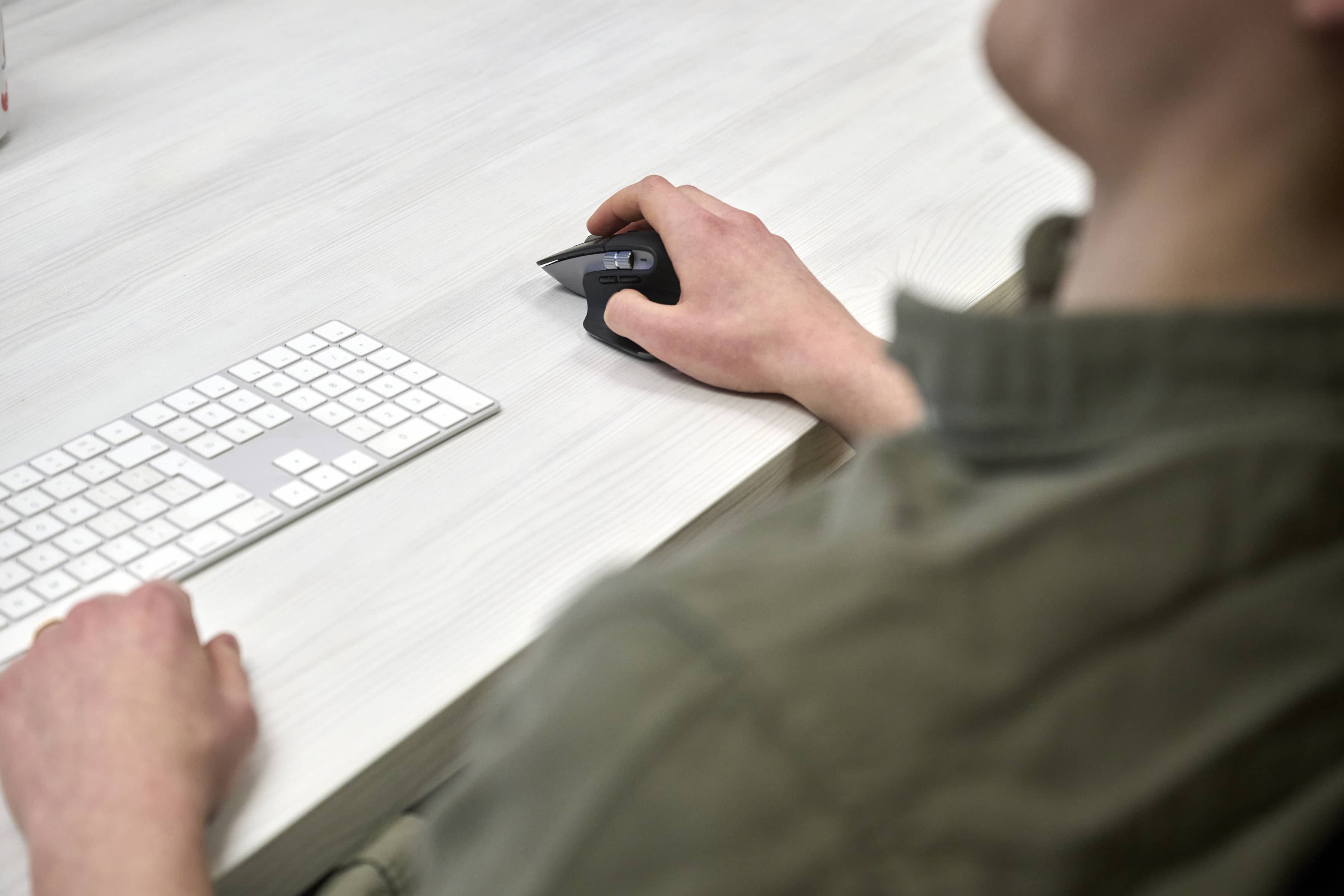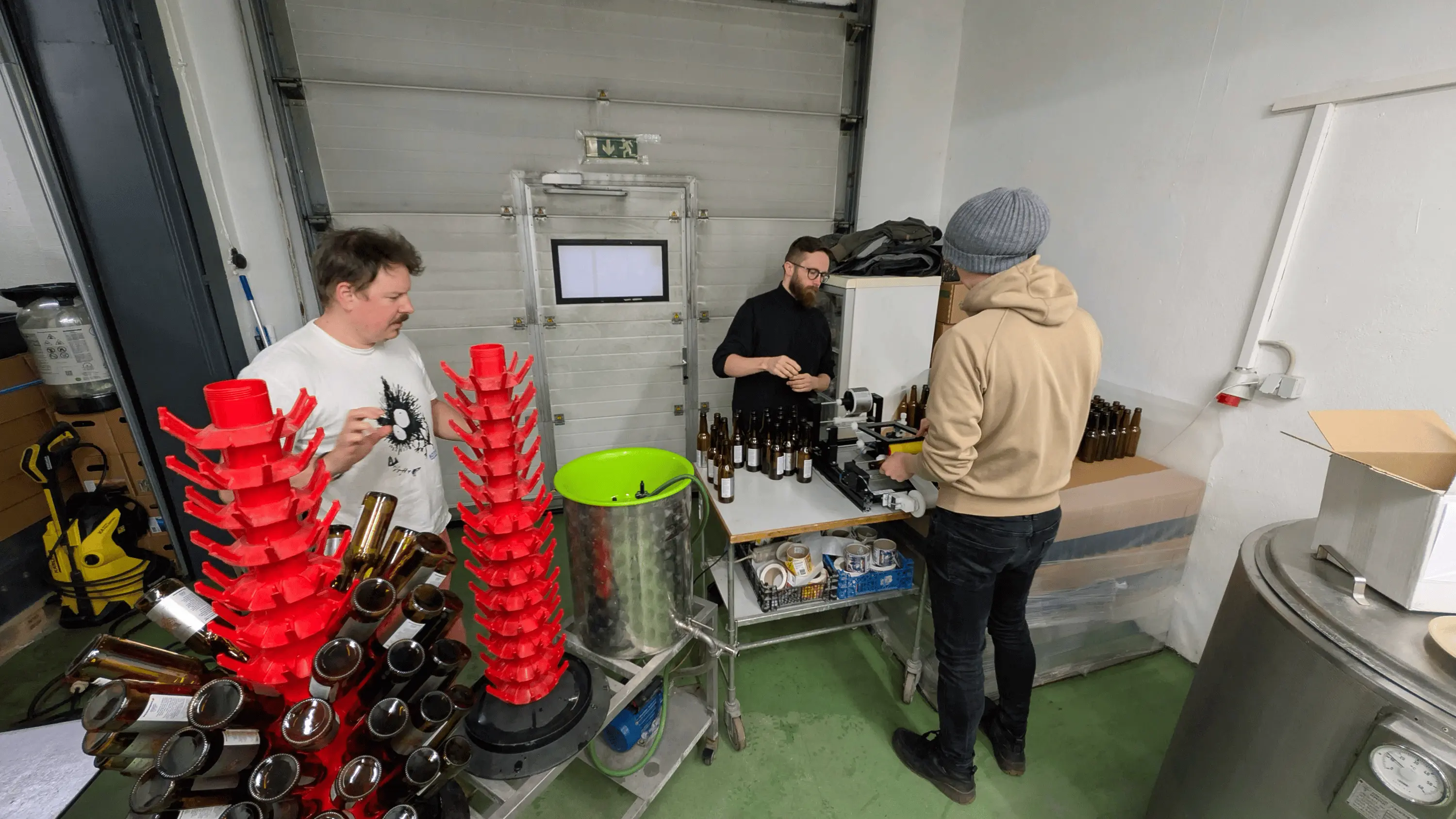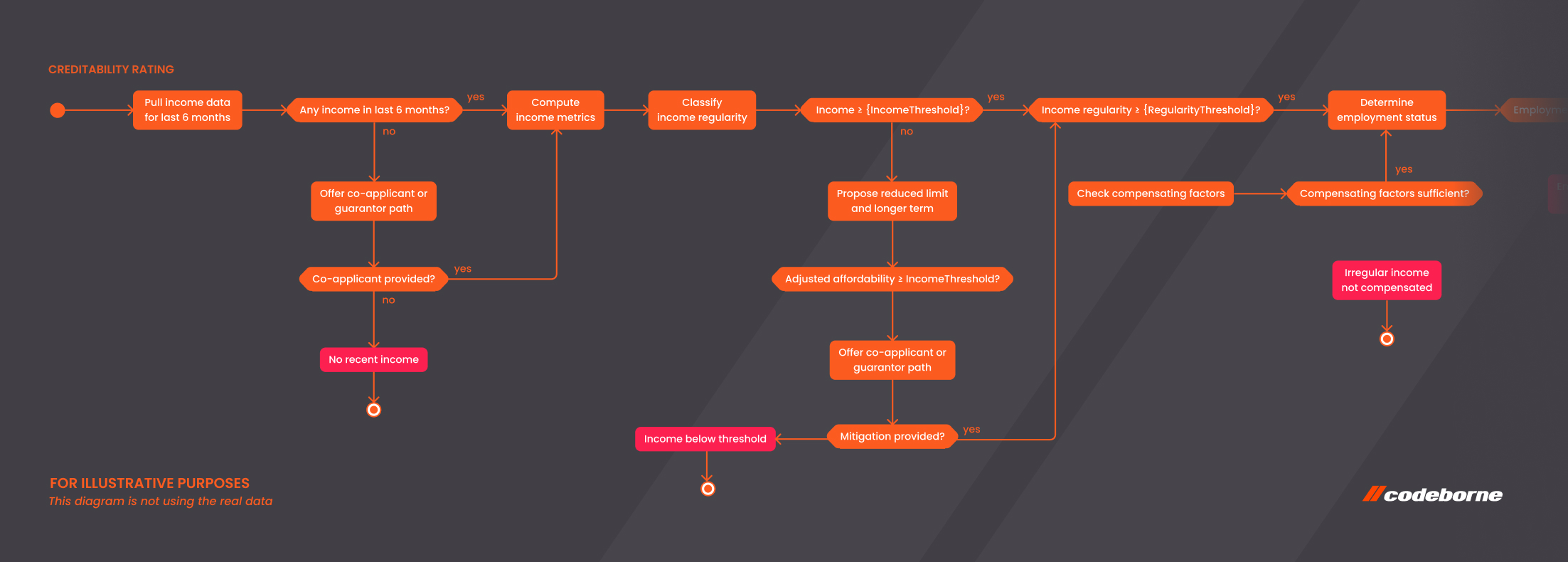
Q&A about working at Codeborne with our HR and a developer
We often get asked what it’s really like to work at Codeborne - how pair programming works, how flexible our office hours are, and what the day-to-day feels like. In this Q&A, our HR manager and a recently joined developer share honest answers to the questions we hear most from candidates.
Over the years, our HR manager Aho has pored over hundreds of CVs and cover letters, selected the most suitable candidates for interviews, and interviewed hundreds of applicants. If interests align, a new software engineer joins us. This is where the HR manager’s work begins. Aho communicates with each of us at least once a quarter, with newer colleagues once a month, and listens to the pains and pleasures of working.
We paused in the middle of a busy workday to reflect more broadly on what job seekers/candidates ask us during interviews. Let’s be honest, there are a number of myths about working at Codeborne, the extreme programming we practice, and pair programming that make many worthy candidates cautious.
Q&A with Codeborne HR manager Aho
What is it like to work at CB?
Just like going to a regular office. The early birds arrive before 8 a.m., but by 10 a.m. at the latest, everyone is in the office for a joint stand-up meeting, after which software development begins with their partners.
What are the usual start and end times for the working day? Is there a strict “be here at 9” policy, or is it flexible?
We expect people to be in the office for 8 hours under normal circumstances. If you come in early, you leave early. If you come in late, you leave late.
Do you have to be in the office at the same time as your partner?
Not always. People have different lifestyles and come from different distances. But at 10 a.m., we are all in the office. Those who arrive early often leave earlier, those who arrive later leave later.
What if you have a cold or feel a little ill?
Then you stay home. If you feel up to it, you do your work from home, if not, you take care of yourself. It’s important to note that if you take sick leave, Codeborne pays for the first three working days.
What if your child gets sick?
Same as in the previous case. You stay home with your child. If you can work while looking after your child, you work. If you can’t, you don’t work and take a day off to look after your child.
I need to go to the dentist – how does flexibility with working hours work?
You go and see the doctor. Your partner does the work alone, and afterwards you review what has been done in the meantime.
The car repair shop is open from 9 a.m. to 5 p.m. Can I shift my working hours?
The same principles apply as for doctor’s appointments.
Can I go to the gym during my lunch break?
Some people do. The main thing is that it doesn’t interfere with your work duties. You can work out before work, during lunch, or after work, the options are there. The office has several shower rooms, drying cabinets, its own locked bicycle parking area, Myfitness next door, a walking track in front of the door, gyms in the Ülemiste Center… there are plenty of options.
If the weather is nice on Friday and you want to take a day off, is that possible?
Ultimately, it’s your vacation time. If you have reserves, then yes, please. However, it must be agreed upon within the project team so that the client is not left hanging.
How much home office flexibility do we have and how flexibly can it be used?
The agreement is two days a month. Some people use it, some don’t. It depends on the team, the person, the project. In terms of working from home, the coronavirus has changed a lot. We didn’t have this option before. The coronavirus pandemic has also led to the development of tools that enable pair programming, such as Tuple, etc. The beginning was rough, as we wrote in our blog in 2020.
How much pair programming takes place and how important is it to be physically present in the office?
At Codeborne, we work in pairs because it works and gets results. We have been doing this for over 15 years. It is easier for everyone when people are physically together. This was particularly evident during the forced stay-at-home period during the coronavirus pandemic and when we did remote pair programming with our clients’ developers. It’s difficult. Information doesn’t flow smoothly. Developers have to be much more alert, which ultimately leads to greater fatigue. These are the main reasons why we don’t want to do it.
How is self-improvement supported – training, conferences, book money?
We have a personal training budget of €1,000 (excl. VAT), which accumulates if it remains unused during the current year. The training fund can be used for conferences, training courses, or purchasing professional books.
What is the pace of work like – are projects generally calm or rather fast-paced?
It depends on the project and the phase of the project. There is everything, as is appropriate for the software world. One important principle at Codeborne is that we do not work overtime, because software development is creative work. It is done every day, and people need to be rested and refreshed for it. We take care of our people.
How does a new developer get started?
Through pair programming. This is another reason why pair programming is a good method, as it helps new people quickly get to grips with the project context and introduces them to Codeborne’s internal work culture.
Q&A with senior developer Arne (joined Codeborne in February 2025)
What were your biggest fears before joining Codeborne, and how did they turn out in reality?
My main fear was that I was used to working from home most of the time and was also used to starting my working day a little later. At my previous job, we had a stand-up meeting at 10 a.m., and my working day didn’t start at 9 a.m. by default. It was more like 9:30 a.m.
When I joined Codeborne, I smoothly adapted to going to the office and haven’t even thought about working from home. My previous fears disappeared on their own, as everything happens on site at the office. We talk face to face, and I haven’t missed working from home. Even when I’m working on my own R&D days, I do it at the office.
As for working hours, I tend to arrive at 9 a.m. Sometimes I leave before 5 p.m., sometimes later. On several occasions, I have been the last one to close the office doors.
And I no longer do work at home. It’s that simple.
Did you have any preconceptions about being in the office at first? How is it really?
I was afraid that I would be so tied to the office that I wouldn’t be able to do other things. However, based on my experience so far, I’ve been able to do everything. Going to the dentist, catching an early flight, etc., haven’t been a problem.
What has been the biggest positive surprise about working at CB?
One is the discovery of working in an office, which is really good.
In addition, there are weekly knowledge-sharing sessions such as team KEXs and company-wide TEXs. Compared to my previous jobs, there has never been such knowledge sharing. Here, knowledge is shared not only within the team, but also across the entire company.
In addition, there are R&D days for self-improvement. Every month, I take a day to improve my professional skills.
How has going to the office affected the quality or productivity of your work?
Coming to the office refreshes my mind and helps me focus. Working with a partner keeps that focus in place. Coming to the office is a ritual in itself—I walk in the sunshine and get myself ready.
I don’t feel the exhaustion that I was warned about (the additional intensity that comes with pair programming and the resulting exhaustion). The work fits nicely into the working day. At the end of the working day, I do a proper shutdown and clear my inbox. At home, I don’t think about work anymore :)
What is the difference between solving problems at home vs. at the office?
There are fewer distractions in the office, and when working in pairs, there is a greater chance that one of the pair will be more “on the ball” and drive the team to a successful solution. Even if you yourself are not always in top form.
Did pair programming seem tedious or scary at first? How does it actually work?
I didn’t worry too much about it because I like working with others. I haven’t had any bad experiences. At first, I was paired with Erik, one of the founders of Codeborne, who taught me and guided me through both the project and Codeborne’s practices. And when you’re tired, you have to control yourself a little more.
How much freedom do you have in choosing which projects you participate in?
I have expressed my wishes to our HR department, but I understand that they may not be realized overnight.
Do you feel that your work and private life are in good balance?
Yes, I don’t take work home with me anymore. That’s the main problem with working from home.
What is the atmosphere like in the team – is it more formal or more relaxed?
More relaxed. We have our own inside jokes, etc.
Do you feel that your opinion is heard when it comes to technical decisions?
I can’t think of a specific example right now, but yes, it is taken into account. It is customary within our team that before starting a major epic, the pair of developers present their solution to the team and discuss it. Constructively. No one is overruled.
How quickly do new developers adapt to the team’s working methods?
Working with one of the company’s founders, it was very quick. The project I’m currently working on has a more complex setup, but it still went smoothly. At the same time, working with CB is so easy that it didn’t take long.
Would you prefer to work from home today, or have you found that the office still offers more value?
I want to go to the office.
Join us!
Codeborne is full of interesting people and exciting challenges. We’re expanding our team and currently looking for a full-stack developer. If you love solving real-world challenges with a skilled team, we’d love to hear from you!
Loe lähemalt Codeborne elust Elu Codeborne'isOur recent stories
The Codeborne Christmas beer brewing diaries
It was a sunny day in September. Quite warm for that time of year. We were sitting with my colleague Tiit on the roof terrace in the Codeborne office as we do every now and then. I ask him for advice on occasion - after all, what are the more experienced colleagues good for otherwise?
“Backing up” a good product owner
One of the key players in most successful agile projects is a product owner, at least in Codeborne’s practice. Our practice stretches for more than 15 years, during which we have successfully delivered over 100 projects.
Unleashing the power - How Creos partnered with Codeborne to change Luxembourg's energy sector
Creos Luxembourg involved Codeborne in its journey to modernize Luxembourg’s energy sector


